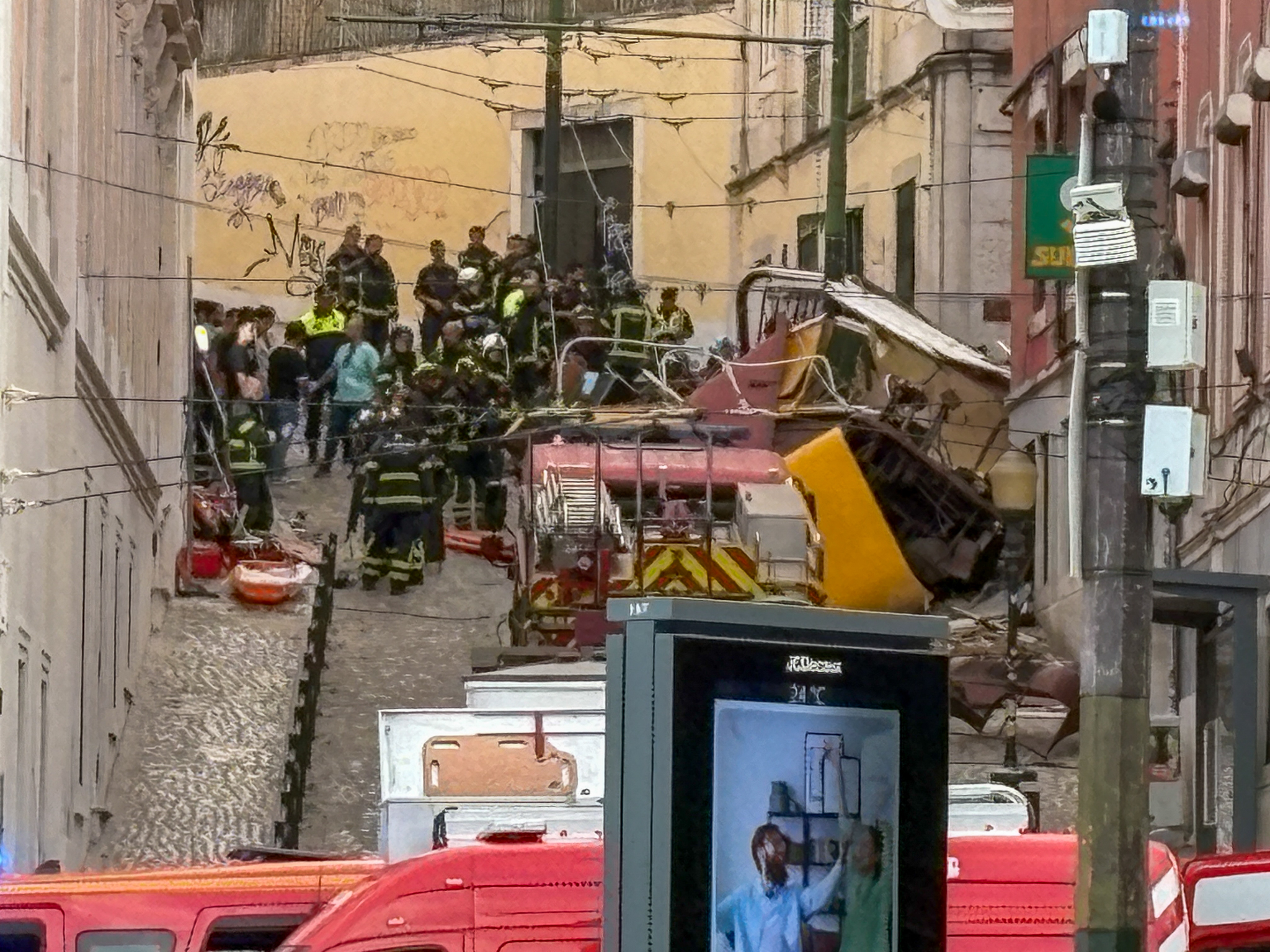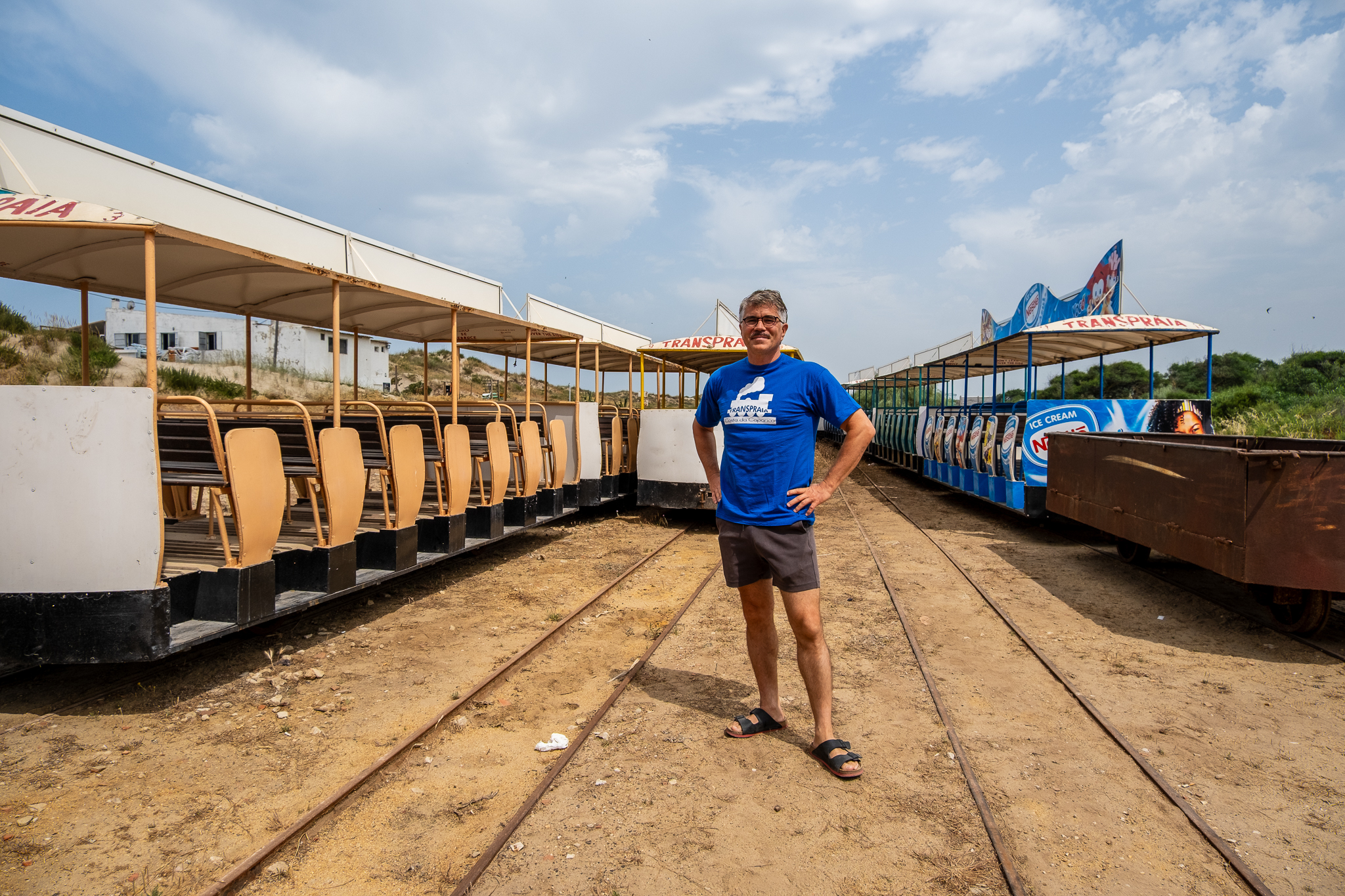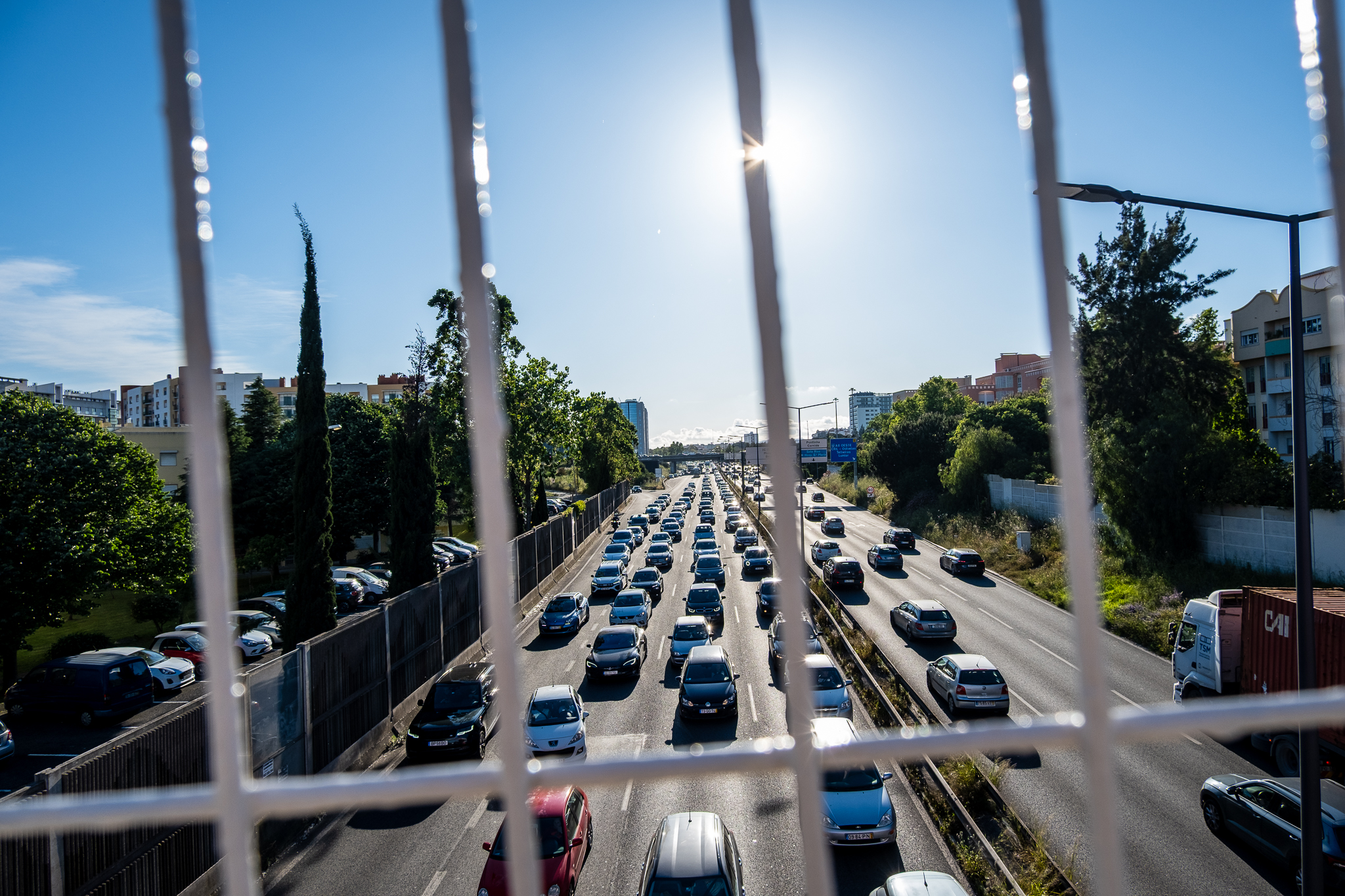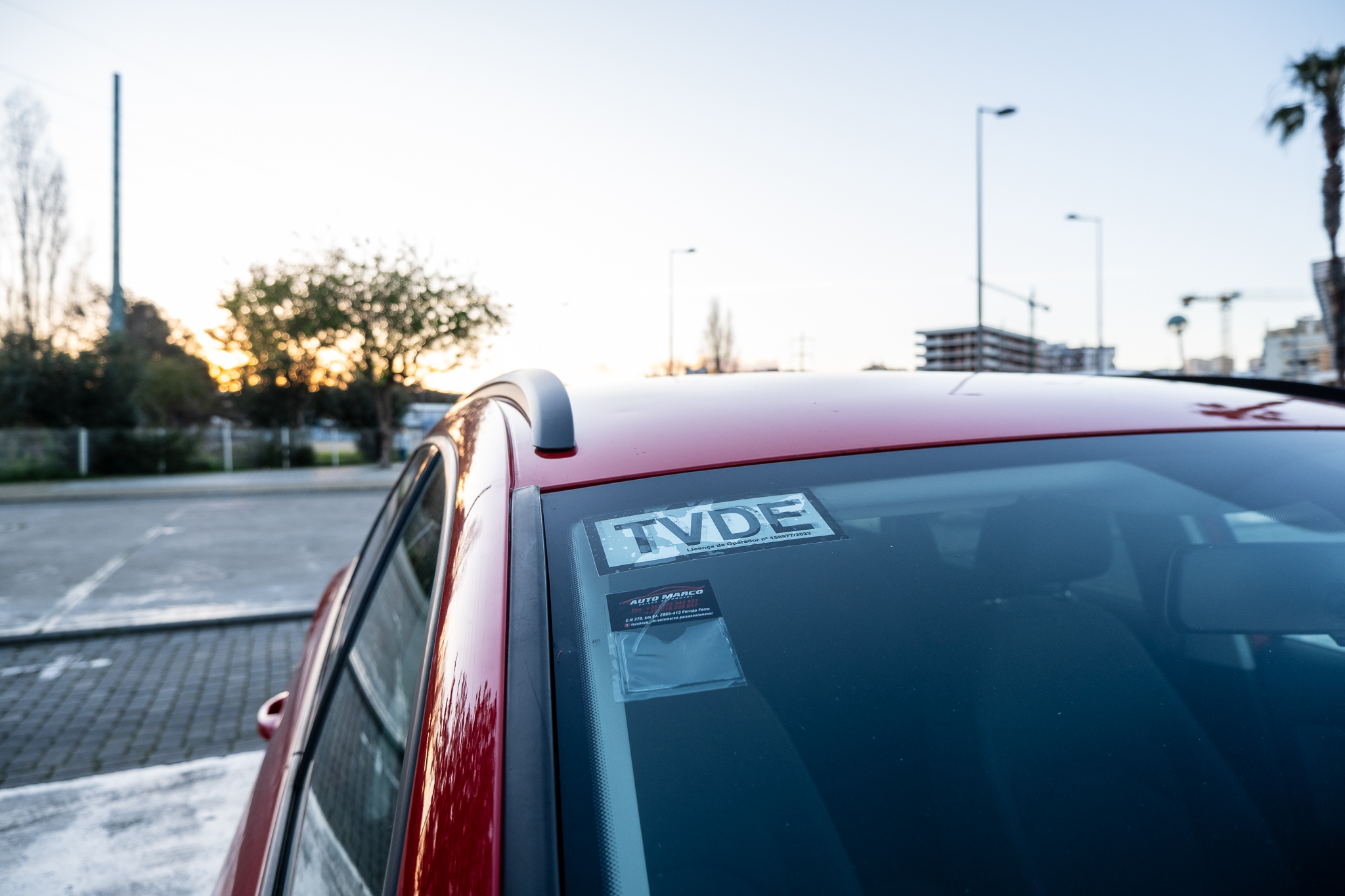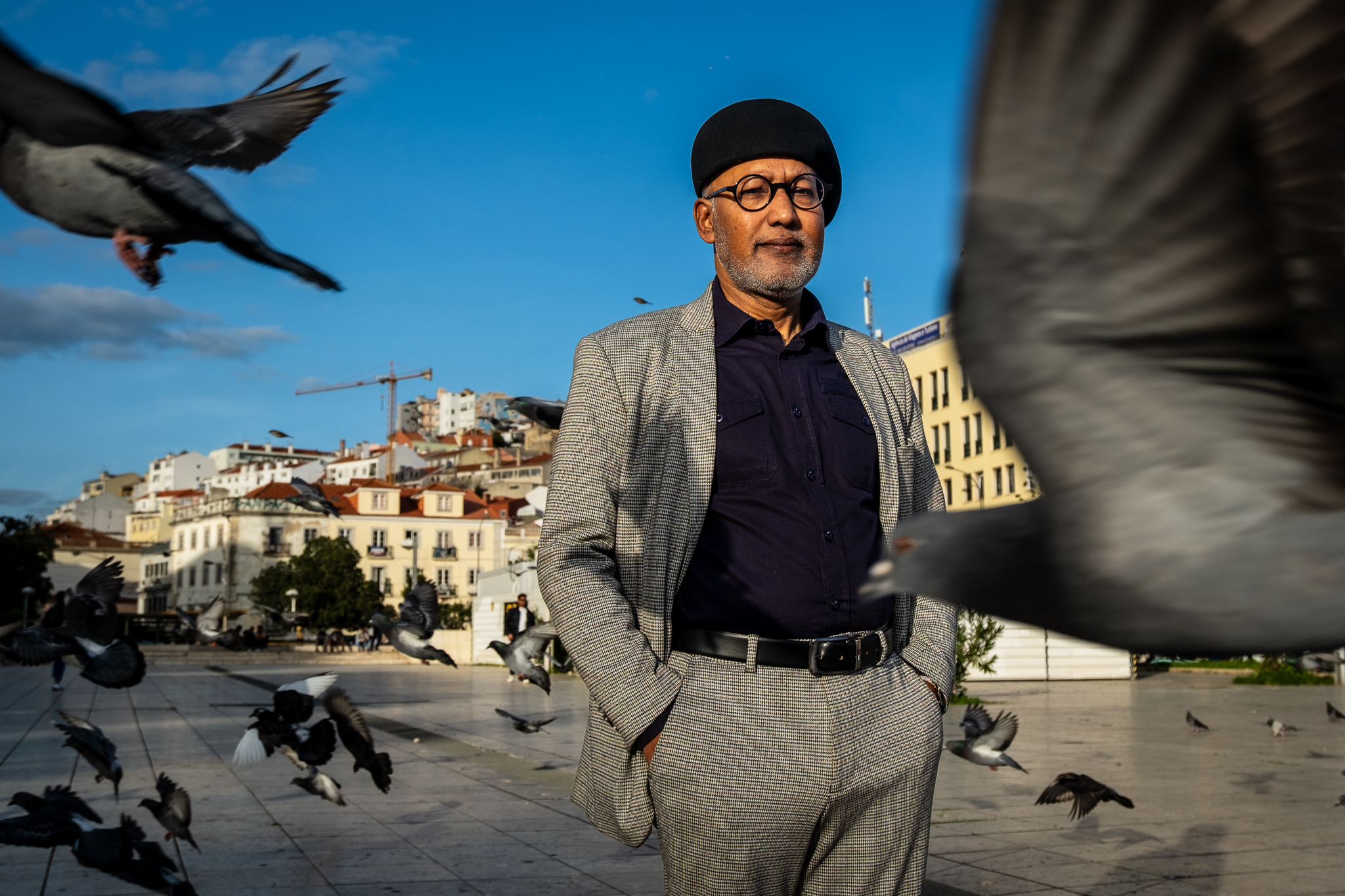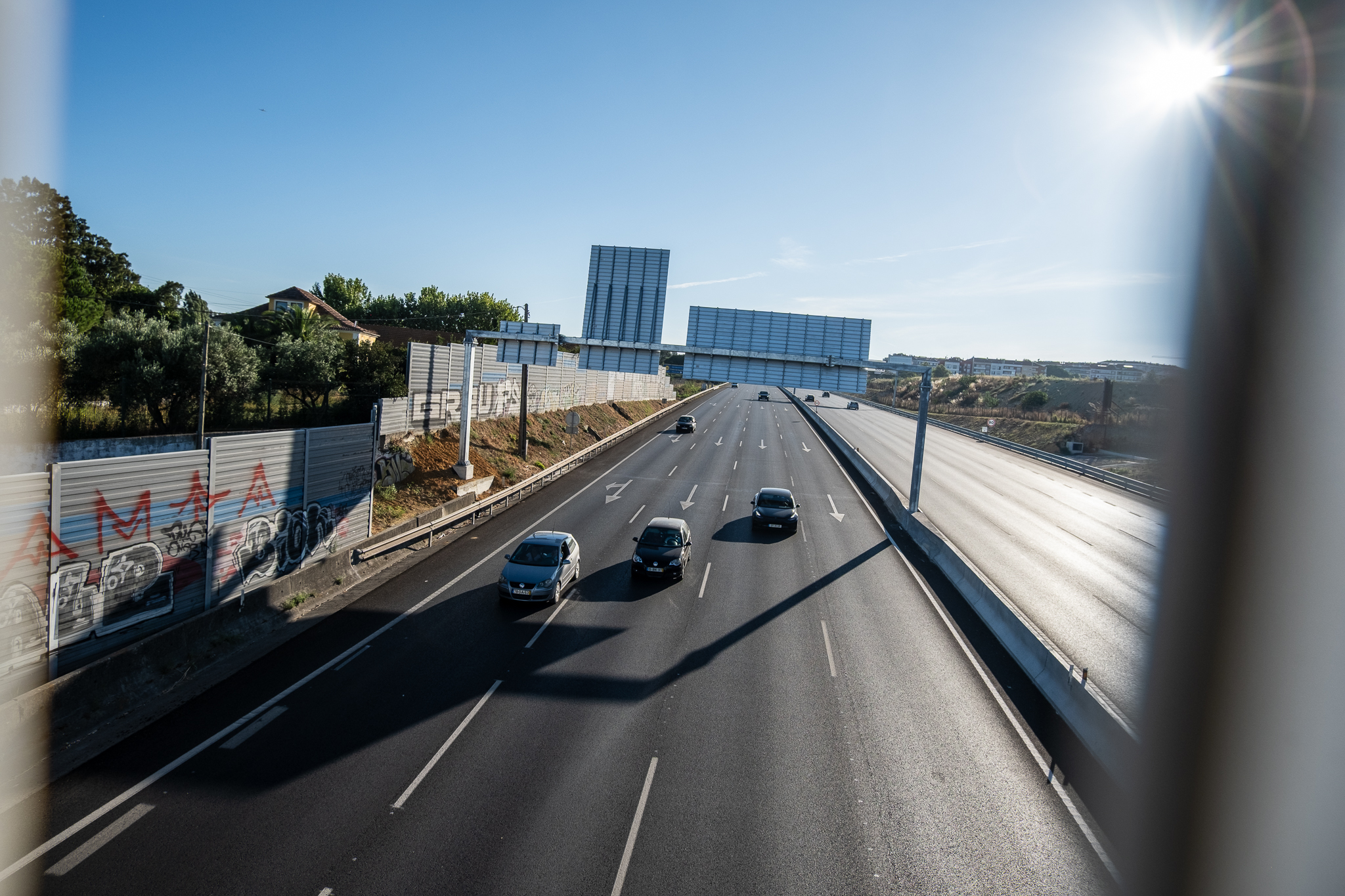The Horta do Alto da Eira, in Penha de França, will be the stage for the Watering Festival, taking place this weekend. It will be a meeting point for people and collective agriculture projects that have flourished in Lisbon.

The relationship between cities and agriculture has been increasingly explored in recent years as people begin to realize the importance of growing food locally and sustainably. In Lisbon, urban agriculture has flourished in the last decade in an integrated way, in gardens and urban parks, but also spontaneously, in vacant lots. Local communities have also created collective projects to show new ways of cultivation in urban centers. A Alto da Eira vegetable gardenin Penha de França, is one of these initiatives and, next weekend, will bring people and projects together in the Lisbon's first festival on urban agriculture.
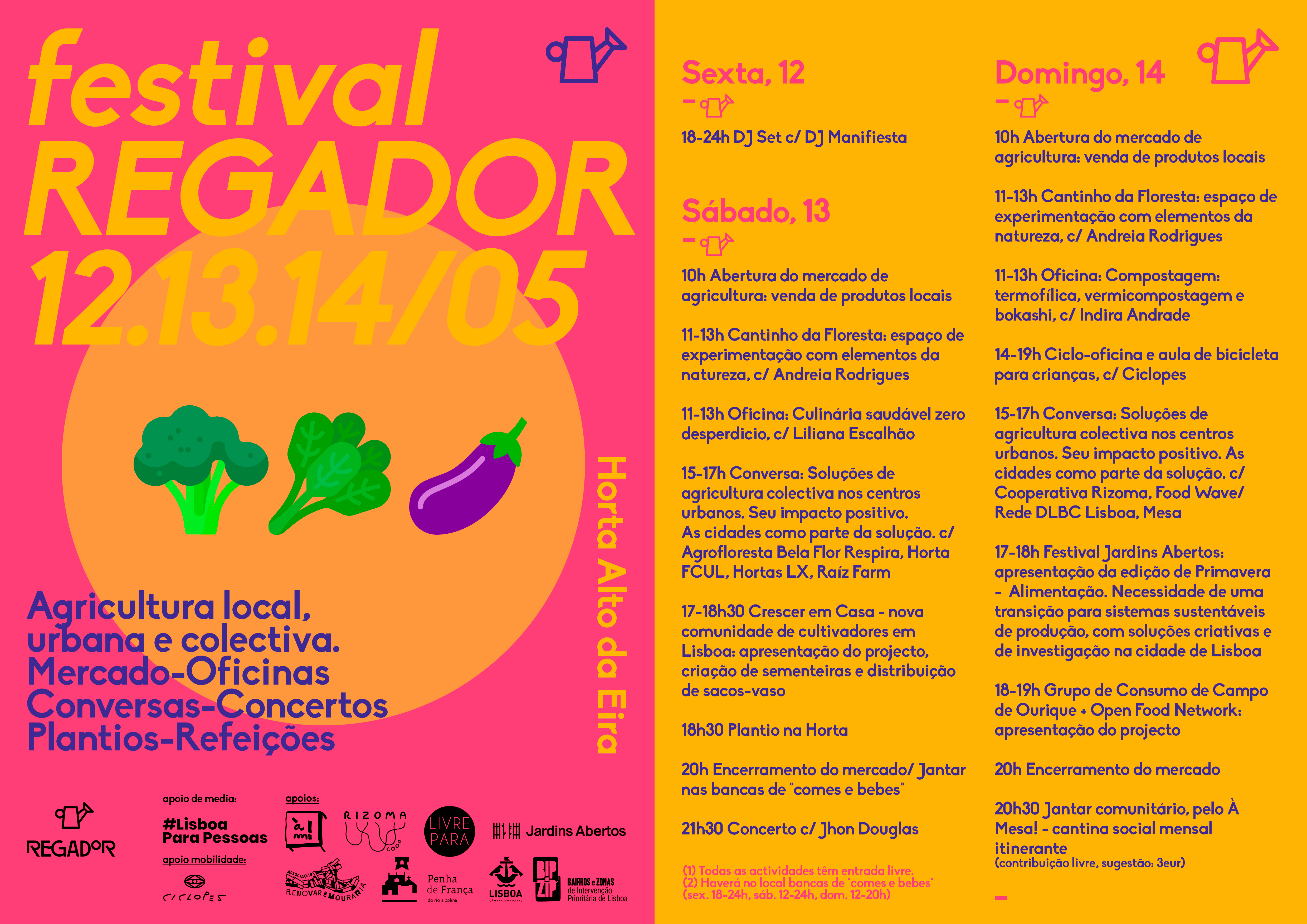
O Watering Festival will have activities for those who appreciate locally grown food and value initiatives of collective genesis. The two-day festival (Saturday and Sunday) will have a vegetable market with sales of local products, conversations About how agriculture can bring people together in a city, project presentations innovative developments in Lisbon, and also workshops about cooking without waste or composting. And to live up to the festival's designation as relaxed moments, there will be community dinners e music - which starts right on Friday, the day before the festival, with a DJ set. All activities will be free of charge and admission is free. The event is supported by Lisboa Para Pessoas and will take place in the Horta do Alto da Eira, a project started by the Regador association in late 2021.
The festival is a way for the Horta do Alto da Eira to make itself (even more) known to the city and provide a meeting point for people, ideas and other projects that, just like in Penha, are bringing communities together around the land and showing "that cities are also part of the solution"says Maria Freitas. "We can create collective agricultural solutions in cities that bring people closer to their food, reduce distances, reduce footprints, and contribute to greater food literacy. People know how to cultivate, how to harvest, how to know where things come from. Basically, cities don't have to move away from food production and can be part of the solution."
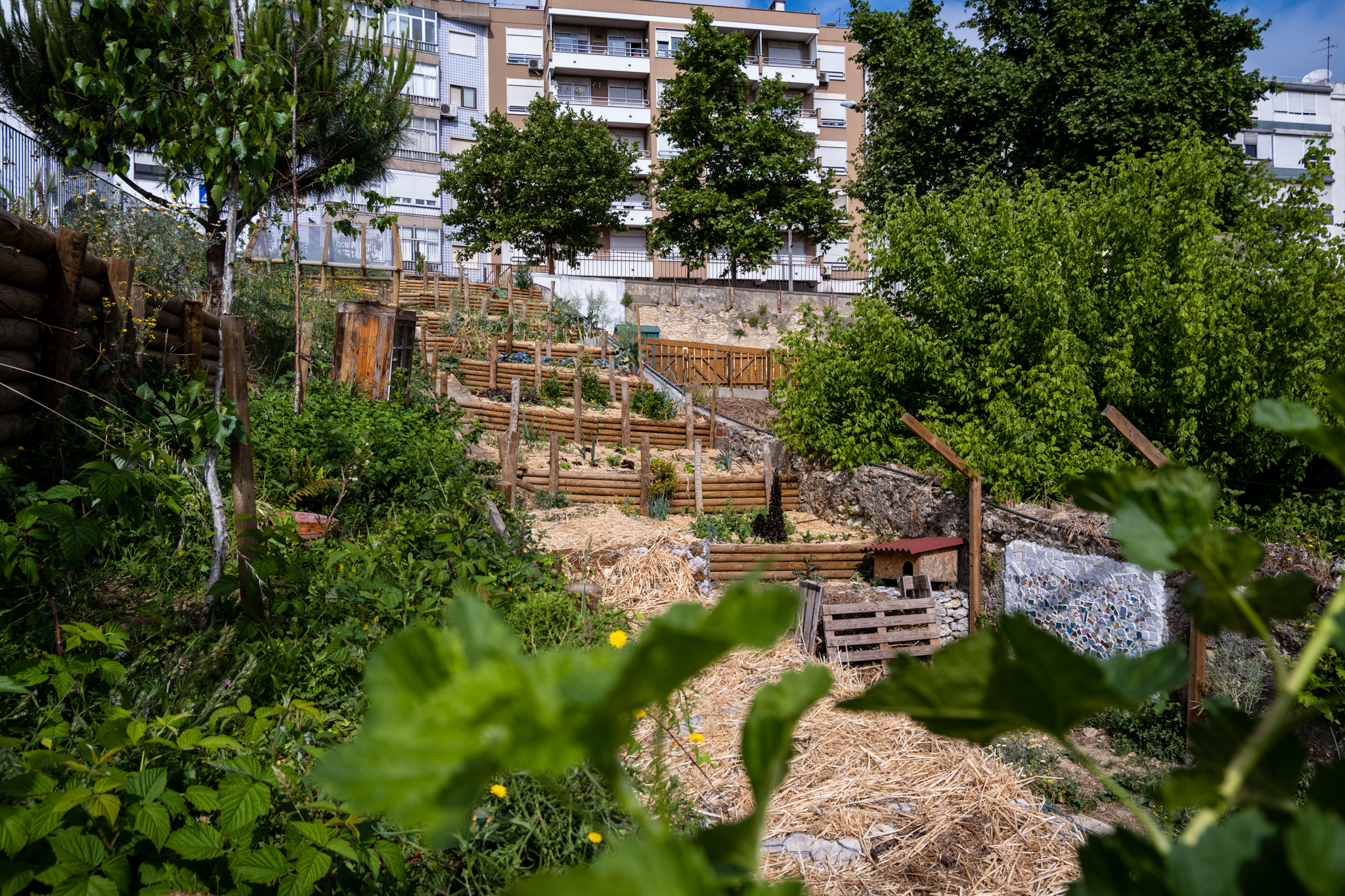
The Regador Festival will be an opportunity to get to know projects such as Agro-forest Bela Flor Respirawhich created a space for biodiversity and nature in Campolide, the Horta FCULwhich connects urban agriculture with academic research, the LX Gardenswhich develops vegetable gardens in the city on demand, the Vertical Farms Rootwhich is working on a vertical farming model, the Growing At Homea new community of growers in Lisbon, the Campo de Ourique Consumer Groupwhich distributes high quality and flavorful products in the Campo de Ourique neighborhood, the Rhizomethe largest cooperative in Lisbon that supports local producers, and the project Food Wave of the association Lisbon DLBC Networkwhich seeks to train young people in the issues of food and environmental sustainability.
"The festival wants to, and will, put a number of entities that are working on solutions for the city, solutions for urban and collective cultivation, and we're all going to talk. There will be talks, workshops, and for socializing we also have concerts, and we're going to have a planting and a community dinner, and of course a local farmers market."summarizes Maria.
A garden and a community
In the last year and a half, the Alto da Eira vegetable garden has become a special place in Lisbon, evidence of how urban agriculture can bring people together beyond agriculture itself, enhance all kinds of encounters, and strengthen neighborhood ties. Thanks to an application to the municipal program BIP/ZIP, the association Regador managed to start, at the end of 2021, the reconversion of a small wasteland rectangle, in a corner of the parish of Penha, into a collective space for cultivation and that extends beyond that territory. The neighbors were, from the beginning, involved in clearing and structuring the land into cultivation terraces, as well as in organizing the dynamics of the garden. A regulation has been established, but, Maria tells us, everything has worked on the basis of a healthy informality.

Unlike the municipal parks, at Horta do Alto da Eira there are no individual plots: everything belongs to everyone and for everyone who wants to be part of the project. Decisions about what to grow are made jointly in public assemblies, planting is an activity open to everyone. and moments of celebration - and the harvests are distributed to whoever asks. Most of what is sown ends up being harvested for the residents who live in the garden area. "Saturdays are the days when we are here working and when we do the harvesting. Often we harvest on the spot and give it to the people who come to us. They don't pay anything. Basically, we are feeding the neighborhoods here."explains Maria.
The Horta do Alto da Eira has a diverse weekly program that goes beyond planting and harvesting. On Saturdays and Sundays there is almost always something going on, from workshops where you can learn how to make bread or build wind turbines, to activities to create infrastructures for the vegetable garden, such as building a wood oven or a greenhouse. And there are also talks, film screenings, popular festivals, or story readings - family activities in which the garden is merely a meeting place.
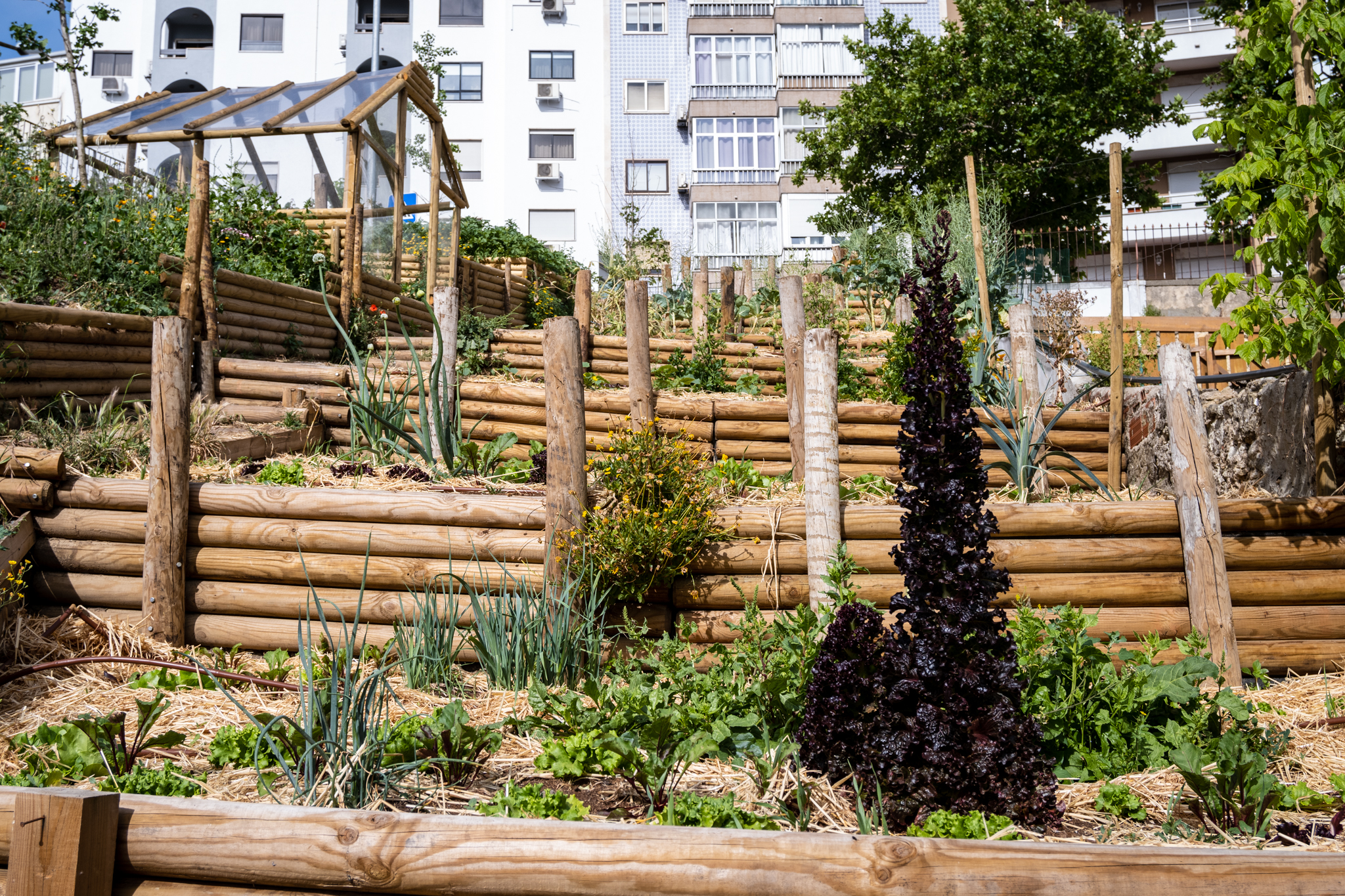
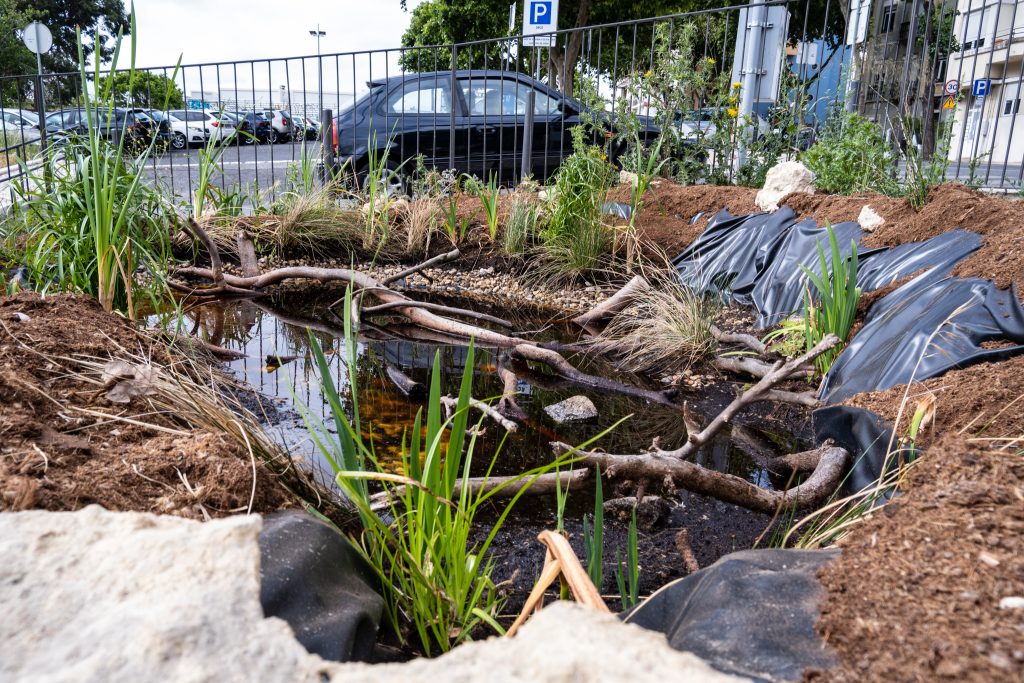
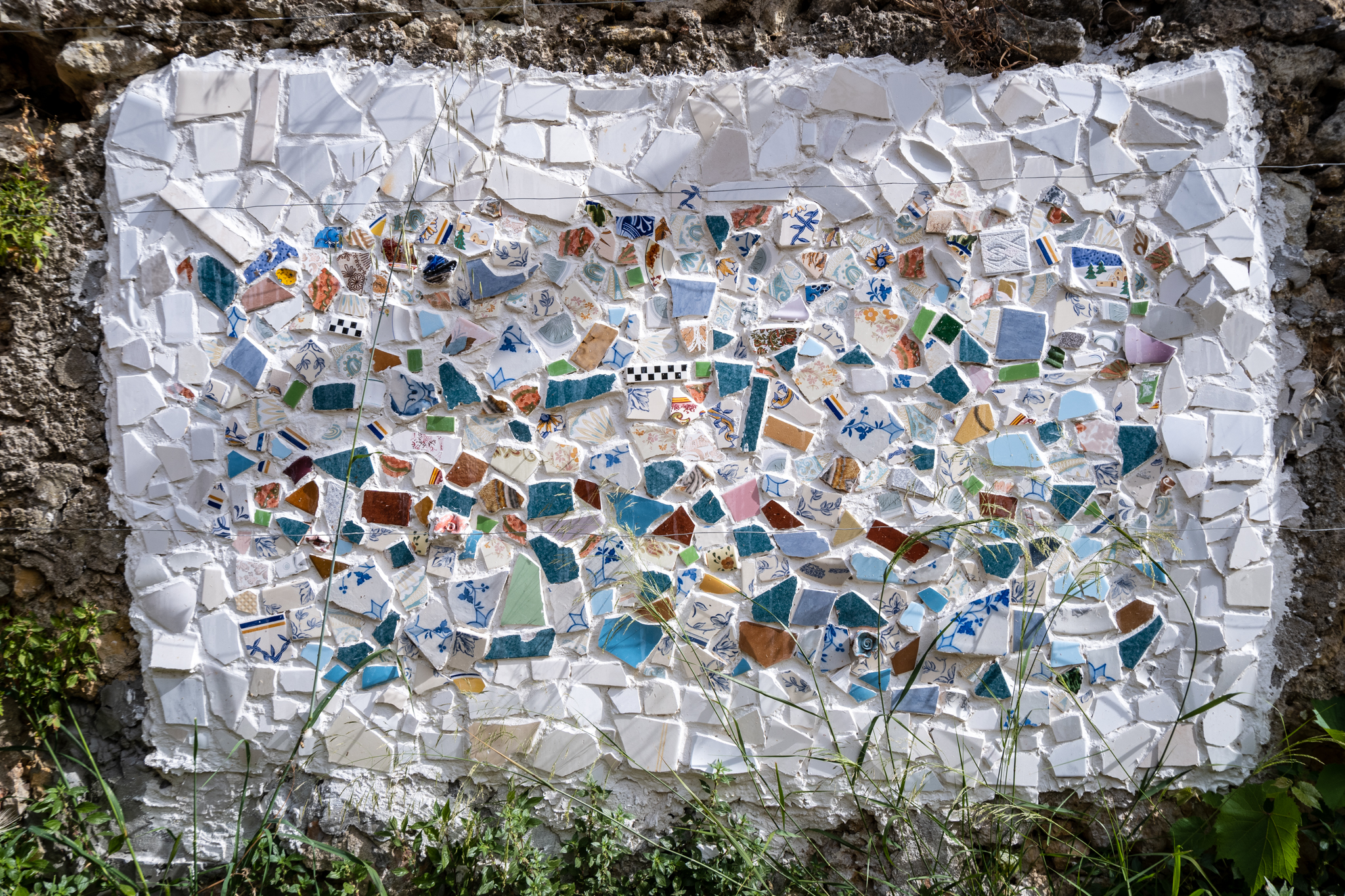
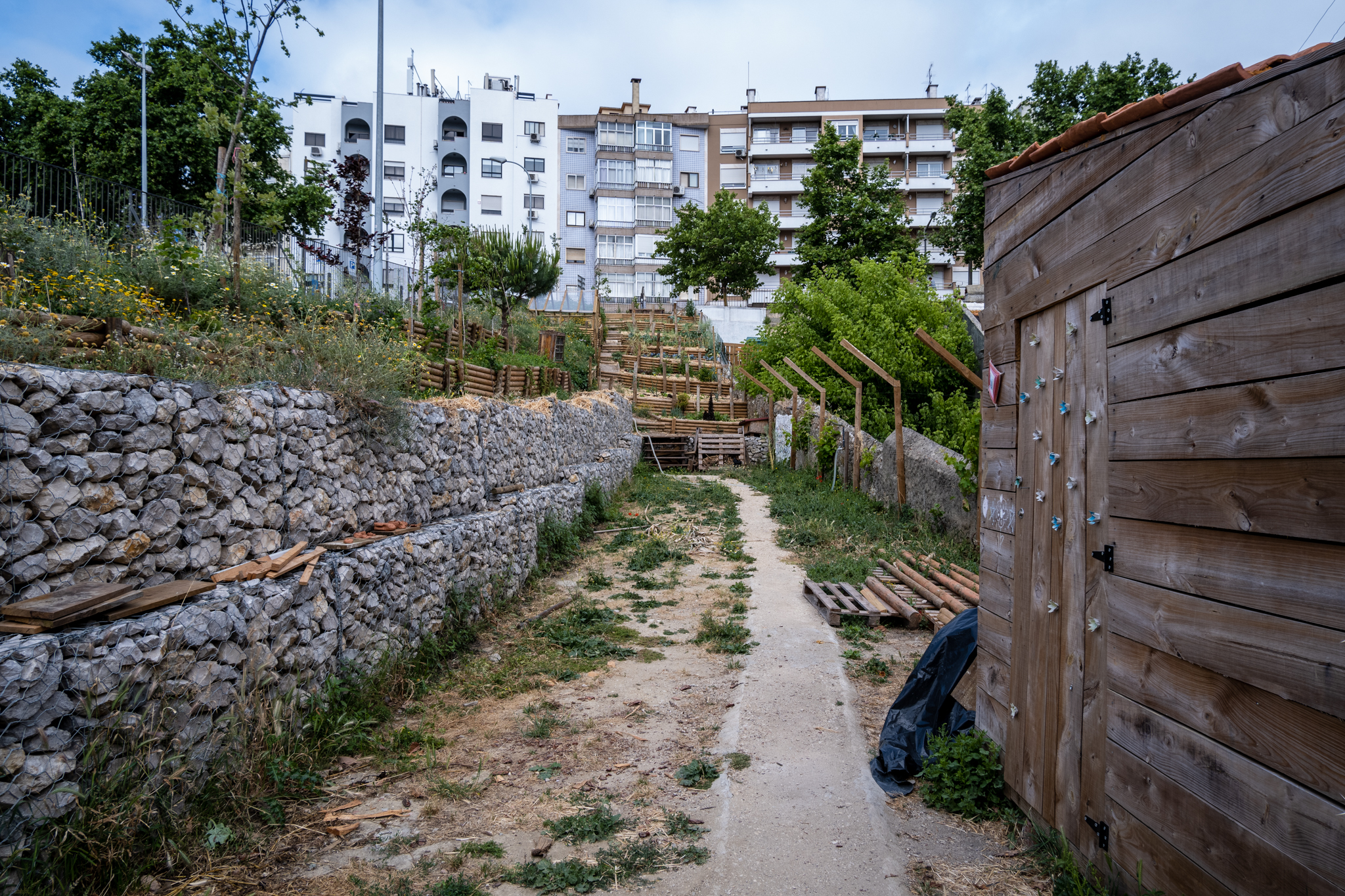
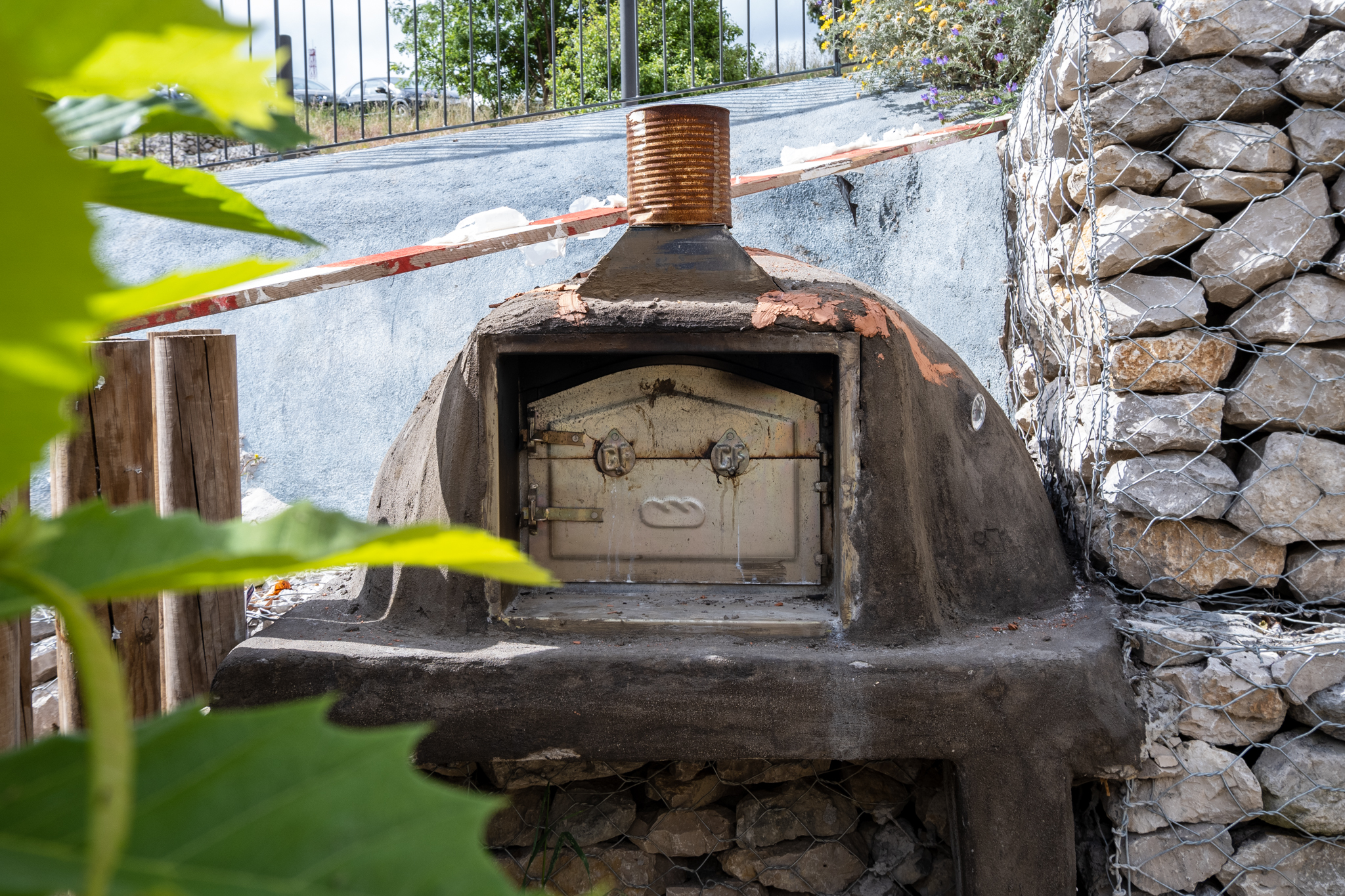
During our visit to Horta do Alto da Eira on a Tuesday morning, we found a space empty of people - a different environment from the one that we got used to and what we will find already this coming weekend. Even so, and even though the garden is always a space under construction, you can feel a vibration that is not normal in the city, you feel that this space really belongs to people and nature - it is what results from their relationship. In one year, a lot has changed in the Alto da Eira vegetable garden: the fruit trees have grown, there are more terraces and different vegetables planted, a pond where rainwater is collected for irrigation, a small wood oven, a mini-greenhouse under construction to serve as a seedbed, and a small mural made with shards found in the middle of the land. All done by all and for all.
It is Maria who walks with us through the Horta do Alto da Eira. "We are between harvests, so we now have fewer vegetables grown"he tells us. But we see lettuce, cabbage, lupins, and potatoes. Lots of potatoes. "I call it a battalion"Maria jokes, because there are so many potatoes growing in the soil. Next to the batatal, at the top of the garden, a pond is beginning to form that will have a double function: on the one hand, to attract biodiversity, both fauna and flora; on the other, to collect rainwater and channel it to a reservoir. From here the water will flow down the terraces in handmade clay pipes, watering the vegetables and moistening the soil. The idea is to make the most of scarce resources such as water and create sustainable cycles within this horticultural space. The garden has an automatic irrigation system connected to the city's water network, because the pond and the rain alone would not be able to manage the crops. But the fact that the garden is watered this way and not manually, with a hose, is also for a reason of sustainability: "With automatic irrigation we can manage water much better. Manual watering uses a lot more water."
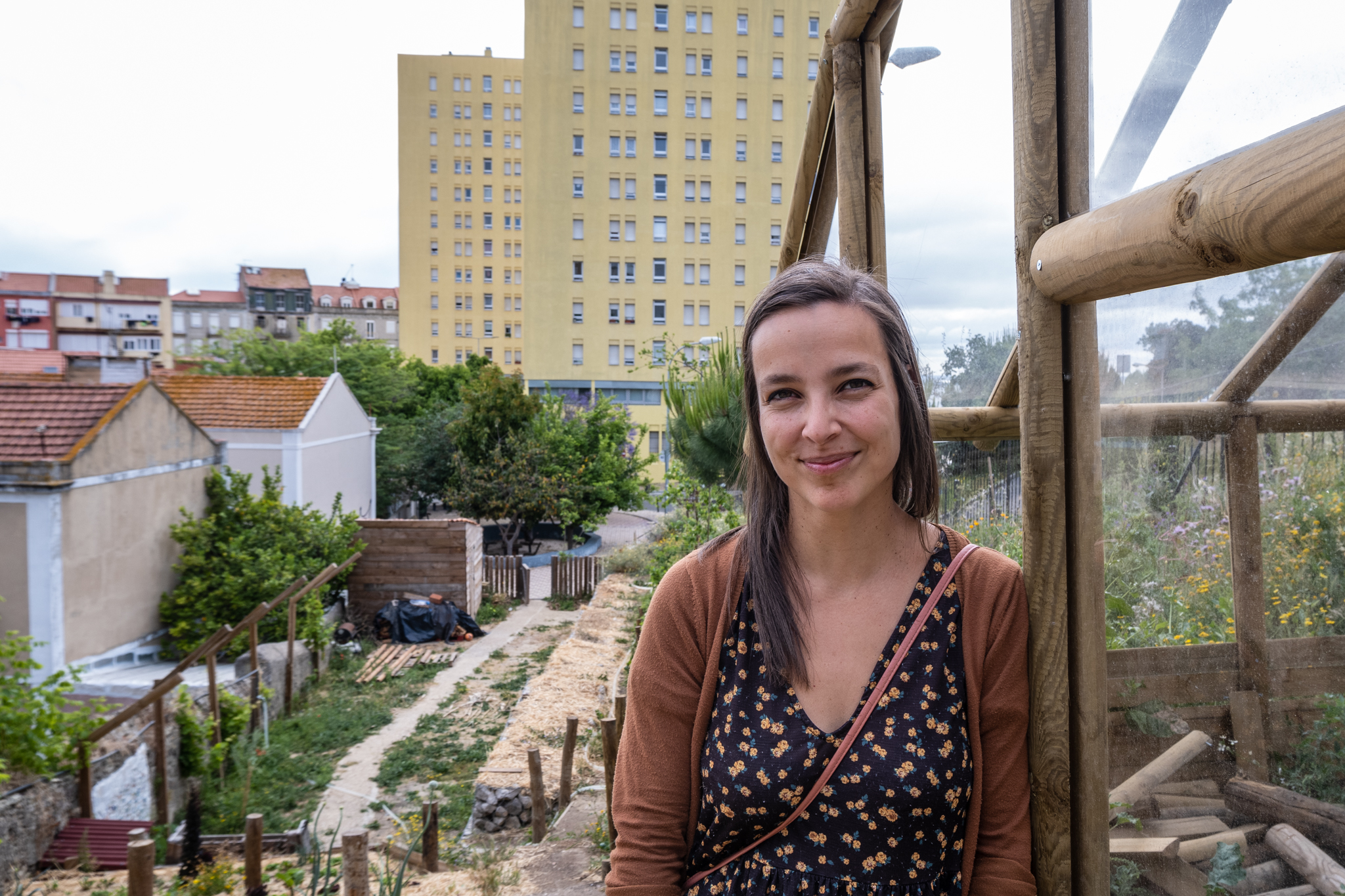
This concern with optimizing and monitoring resources is constant in the Alto da Eira vegetable garden. Further down, next to the fruit trees, small ivy plants grow to help conserve moisture and straw and organic waste has been added for the same purpose. "We want to be as self-sustaining as possible"says Maria. That is why a seedbed is also being built. "We want to stop buying seedlings [the "baby vegetables for transplanting"] and develop the seeds in this small greenhouse and then, already as small plants, pass them on to the vegetable garden"he explains.
The deep part of the Horta do Alto da Eira is a multi-purpose area, so to speak. This is where people gather and activities take place on weekends. And this is where the Watering Festival will take place, namely the vegetable market part. The Alto da Eira vegetable garden will continue to be developed by the community, at least as long as people want it to be and the Regador association has the financial possibility to continue to coordinate the project. The operation of the garden will continue to happen in an organic way, adopting the dynamics that naturally arise.
The project has been attracting more people from outside, from the city, than residents of the surrounding neighborhoods. But Maria highlights the important role of the neighborhood in protecting the space "when we are not here" and that "it is normal that not everyone has the body or the will to participate". Basically, everyone participates as they can and want to, whether it's planting, making things for the garden, or in events and gatherings, or for simple street conversations. The Horta do Alto da Eira has shown very well what collective agriculture can be, and the Regador Festival will be the space to talk about it and to cross-reference other initiatives.

